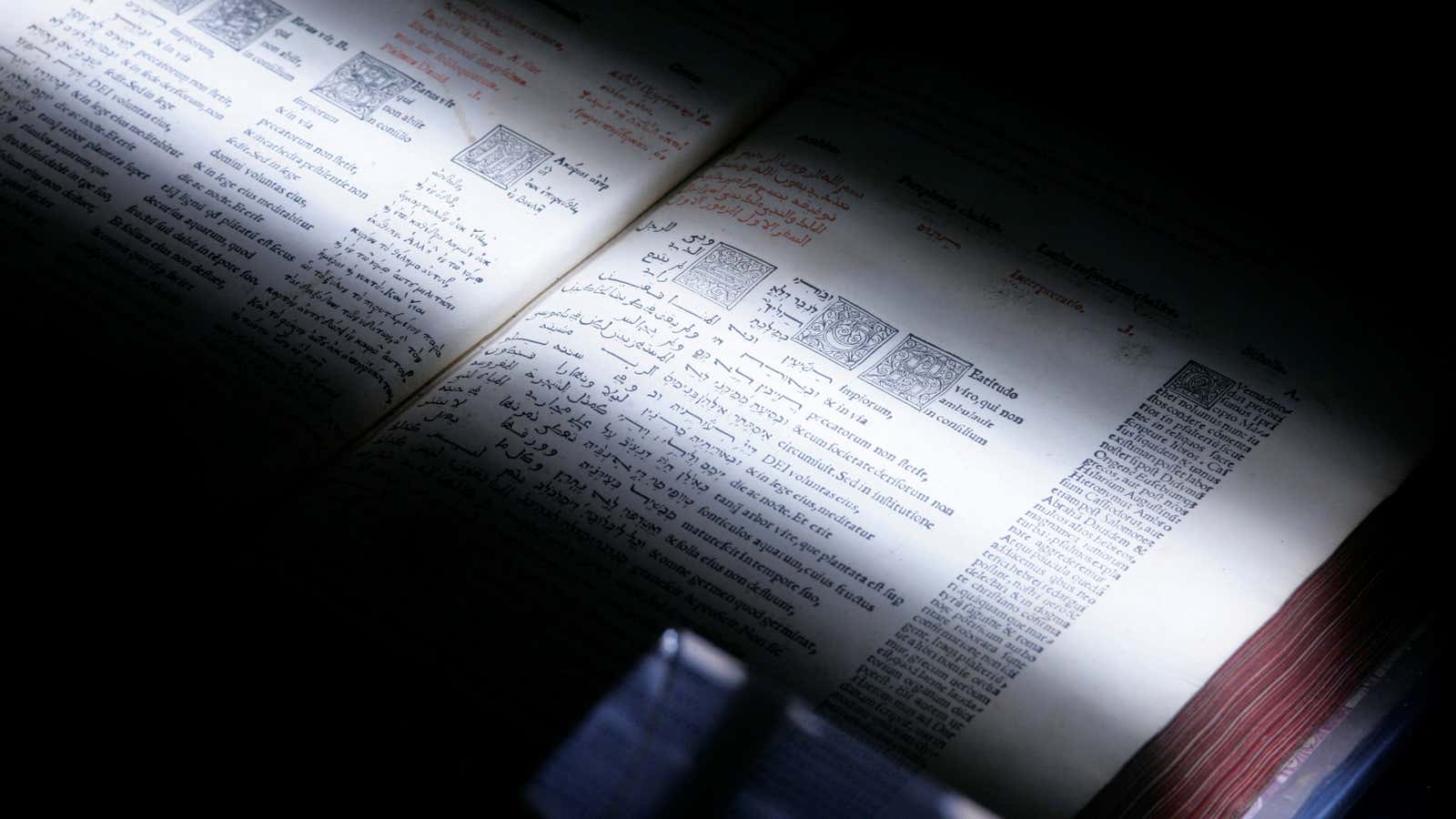Some of the biggest members of the literary establishment are banding together in a fight against Google.
On Feb. 1, a group of world-famous authors filed a joint amicus brief weighing in on a ten year-long legal battle against the internet giant. Prominent signees include novelists Margaret Atwood, J.M. Coetzee, Ursula K. Le Guin, and Tracy Chevalier; composer Stephen Sondheim; screenwriter Tony Kushner; and journalist Malcolm Gladwell.
The case, Authors Guild v. Google, is centered around the Google Books Library Project, for which the tech company scanned 20 million books to create an online library. Four million of those books were under copyright, and Google did not have permission to use them. The guild believes that the company should be taken to task for depriving authors of licensing fees.
In last week’s brief supporting the guild, these luminaries highlighted Google’s worst offenses: among them, the fact that the $477.3 billion company once used scanned, copyrighted book pages for ad revenue. (Though the company has stopped, the brief contends they could start again.) They write:
“Users’ searches returned Web pages on which Google initially sold advertising. By creating a search project that would draw people repeatedly to new searches, as one consults a dictionary, Google created a vehicle for creating new, advertising-bearing Web pages that would enrich its advertising revenue.”
In addition, the authors point out that “the internet was not anticipated.” Current US copyright law was largely drafted in 1976. There’s no way, they write, that Congress could have foreseen what would happen to copyrighted works:
“Second, the technological changes of the past 20 years, especially the mass digitization of works and their easy and fast transmission over the Internet, was never contemplated by either the Congress that enacted the 1976 Act or this Court when it decided Campbell.”
The brief concludes that now is the time for the Supreme Court to re-evaluate “fair use,” which essentially says that copyrighted materials can be used for research or “transformative” reasons. In 2013 a judge dismissed the case, saying that since Google only shows excerpts of texts, and not the books in full, the project was protected by fair use. He also found that the project ”helps to preserve books and give them new life” and is a new way of using books:
“Google Books is also transformative in the sense that it has transformed book text into data for purposes of substantive research, including data mining and text mining in new areas, thereby opening up new fields of research. Words in books are being used in a way they have not been used before.”
The guild filed for an appeal to the 2013 ruling, and lost in October 2015 by unanimous decision. This new brief could contribute to the Supreme Court’s decision on whether or not to hear the case.
Read the whole brief (pdf).
